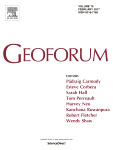From regime protection to urban resilience? Assessing continuity and change in transnational security governance rationales in Guatemala
Markus-Michael Müller, Markus Hochmüller – 2017
This article analyzes changing forms of transnational security governance and security expertise in Guatemala. It is argued that the dynamics of transnational security governance in Guatemala are directly related to the local appropriation of knowledge promoted by external security experts. As an expertise-based form of “intervention by invitation,” local political and economic elites engage in securitization strategies in order to invite external experts to intervene. In turn, through their intervention these experts provide resources that are “captured” and exploited by local actors to pursue their own interests. As a consequence, transnational security governance fails as it deviates from the original plans and programs experts try to implement. The analysis of these processes sheds light on how and why failure in the context of transnational security governance is productive. Failure, we argue, triggers a self-reinforcing interventionary feedback loop that aims at “fixing” the shortcomings of previous interventions by mobilizing new forms of external security expertise. In tracing the dynamics of this interventionary feedback loop over time, this article contributes to understanding of the role of experts and policy failure in the (re)making of transnational security governance.

